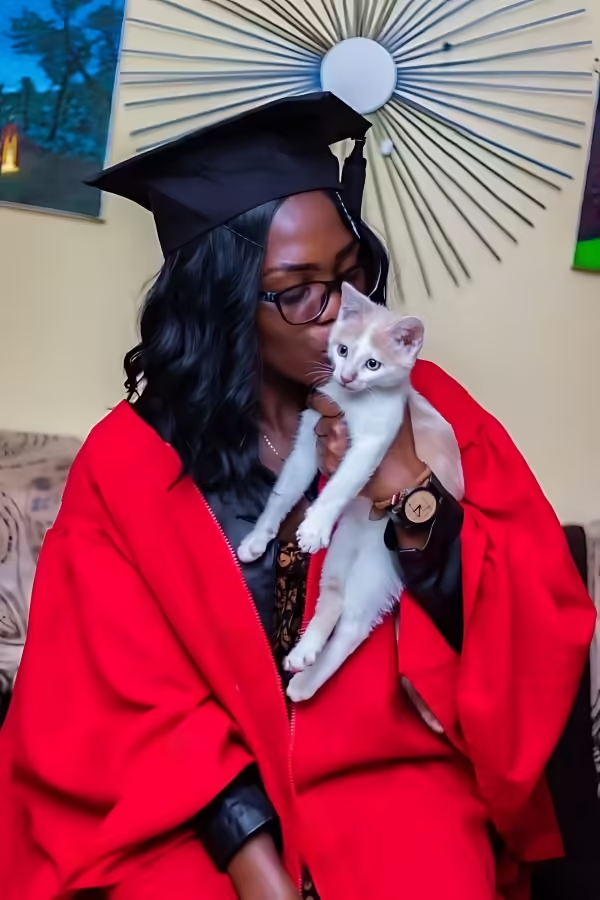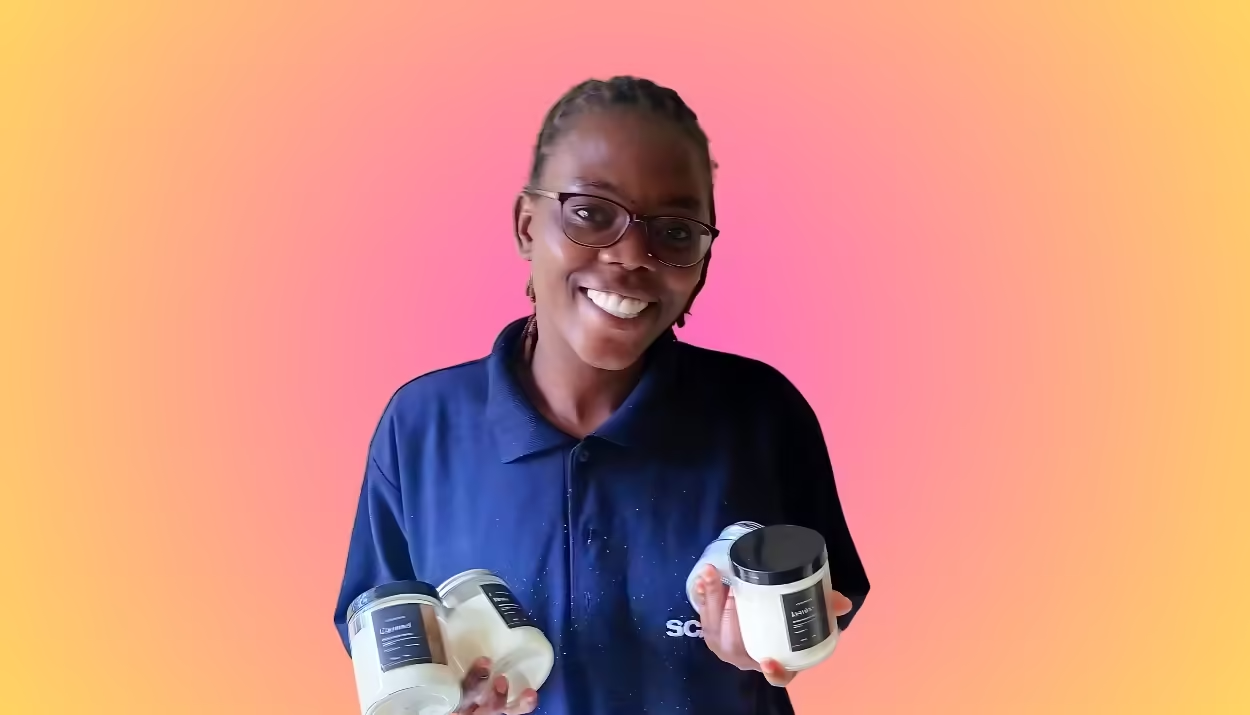The conventional wisdom is clear: education, employment, economic security. A linear path trodden by millions. But what of those who blaze their own paths? Annah Oyottoh, a 25-year-old Nairobi entrepreneur, is one such individual.
Her venture into scented candles, interior design, and home decor is a defiant counterpoint to the often-prescribed career trajectory.
In a nation where the promise of white-collar employment holds sway, Oyottoh has chosen a different route. Her decision to become an employer rather than an employee is a bold statement. A recognition that the pursuit of financial independence can be as rewarding as the security of a salaried position.
Her journey is a testament to the entrepreneurial spirit thriving amidst the challenges of a burgeoning economy. As she navigates the complexities of building a business from the ground up, Oyottoh is rewriting the rules of success.
Her story is a beacon for those seeking alternatives to the traditional career path, offering a compelling narrative of ambition, risk, and reward.
Contents
- Why this business?
- Why Utopic?
- What amount did you use to invest in the business?
- When did you start Utopic?
- How much do you make in a month?
- What were the major challenges? How did you overcome them?
- Where do you see yourself in the next 2 years?
- If you were to start all over again, what would you do differently?
- What keeps you going?
- What is your daily routine?
- Best piece of advice someone gave you that keep you going with the business?
Why this business?
Utopic Décor is a company that deals mainly with interior design, boosted by scented candles and home decor. The home decors are basically DIY (do-it-yourself) products that use different home aesthetics for enhancement.
I started this business because I was tired of the formal employment. I never liked being employed regardless of working for a few months in my first company. I wanted to start my own company and because I had done Interior Design, I knew I could make something out of my skills.
I also hated being idle. Therefore, I wanted to get busy with something that made me productive and got me money.
What pointed you to this business?
I was once employed and didn’t like the employed environment. Additionally, I wasn’t getting paid in this first employment. I did not want to be in a place where I was not appreciated.
Instead of using much of my time where I am not employed, what if I also use the time to grow my own company? So, I quit the job and started being serious with my company.
As someone who had done interior design, I wanted something related to what I had done. Therefore, that gave me the idea to start my own interior design company. That was the birth of Utopic Décor.
I decided Utopic would have a combination of three businesses in one. I told myself if the interior design is not working that much, what of scented candles or home decor? Somehow, they are related but still different. That’s how I have all three of them.
Why Utopic?
The Utopic comes from the word Utopia and Epic. It unleashes the sensational authenticity of spaces and people. That’s where the name comes from.
What amount did you use to invest in the business?
I invested around KES 5000 ($39) to begin with. This was the amount I used to purchase the necessary tools for the business. Skewers, printing posters, drawing boards. It was small things altogether but they were a start for Utopic.
When did you start Utopic?
I started Utopic while still in college back in 2021. This was because I was like what else could I do outside of reading that is related to my course. However, I was doing it for fun just to enhance my skills. Commercially, I started being serious with Utopic in 2023 after quitting my job.


How much do you make in a month?
The highest that I have ever made was around KES 7000 ($54) and the lowest was KES 200 ($1.55). The sales were majorly from scented candles. Remember, the scented candles are just starting from as low as KES 200 ($1.55) to around KES 1000 ($7.75).
What were the major challenges? How did you overcome them?
The fact that people don’t trust you as a beginner interior designer was and is still a challenge. In interior design, most customers look for people who have the experience. It was tough to penetrate the market. However, I would do small projects at home and record them for my social media pages. This was a way to show my work and gain experience. Somehow, it started creating trust for my new clients.
For the scented candles, the industry is not highly appreciated in Kenya. In the beginning, I targeted people from a class who did not appreciate designs, home decor, and scented candles. While marketing, someone would even question if would they buy a candle or will they buy maize flour. Maize flour is the staple food for Kenyans.
I later realized that I was marketing to the wrong audience. Some people appreciate these things and nowadays I know where to get my customers.
Where do you see yourself in the next 2 years?
I am aiming to have a website and a physical location in the commercial area of Nairobi. I think having a physical shop can be a good idea to make it easy for deliveries and create trust with my customers.
If you were to start all over again, what would you do differently?
I would market myself more. I would advocate for the business in every place I went. Tell someone my name and then give them my business card. I wasn’t that confident to sell myself in the beginning.
What keeps you going?
The fact that it makes me independent and pushes me towards being a CEO. I wanted to be a CEO from as early as childhood so this is one of the ways of becoming one.
What is your daily routine?
On most days, I wake up and do a lot of research on the design and how to better my business. I also try to balance everything that I do so that home decor, scented candles, gets equal attention.
On some days in a week, I walk around town with my samples to get clients and market myself. This also happens to be the days I do deliveries to most of my customers.
Best piece of advice someone gave you that keep you going with the business?
I think Vusi Thembekwayo, a South African entrepreneur whom I look up to in so many ways, especially in business. His mantra: Just Start and Believe in Yourself was the one that made me become louder with my business.
I think believing in yourself as a small business owner can be visionary. Who knows, I could be the next Vusi Thembekwayo to someone else in a few years to come. Or the first Annah Oyottoh. (Haha)






